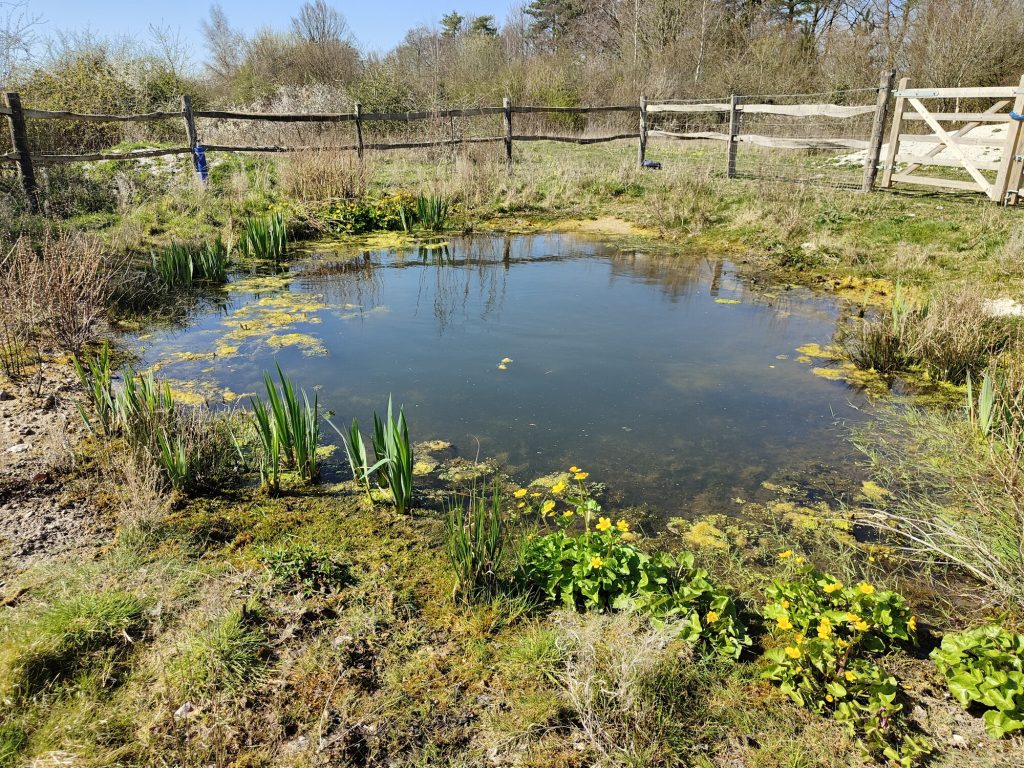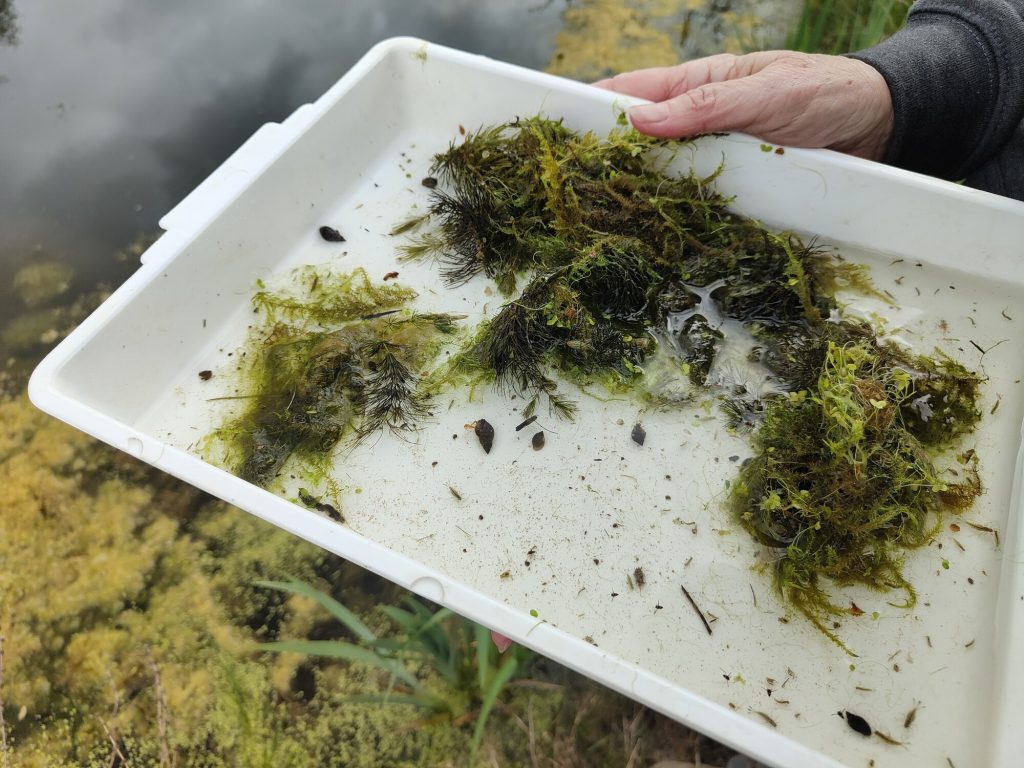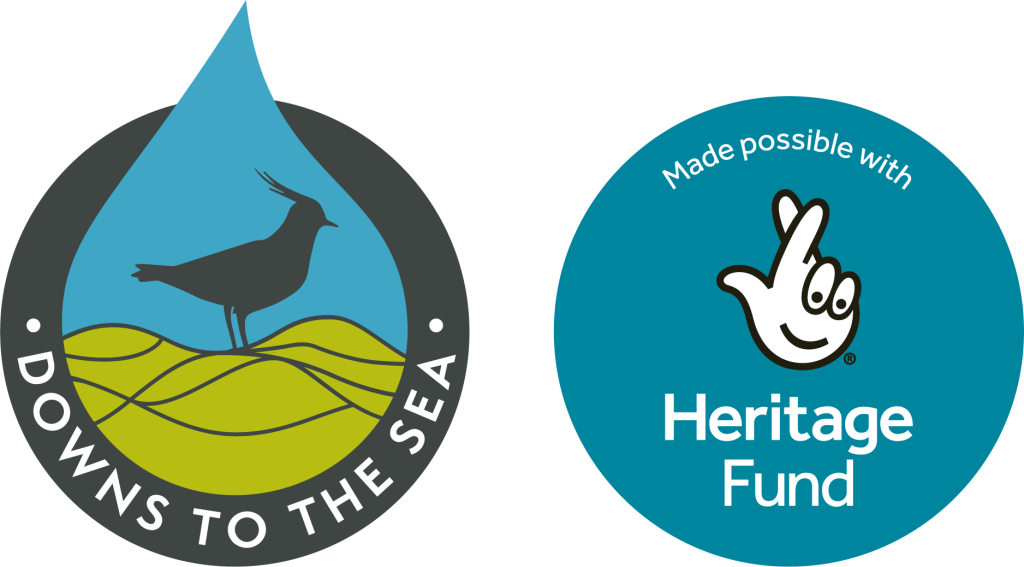Eleven much-needed wildlife ponds will be created across the South Downs National Park to help nature bounce back, thanks to a £75,000 funding boost.
The “Pounds for Ponds” initiative continues to go from strength to strength and is now entering its second phase after already restoring 10 dew ponds across Sussex and Hampshire.
Dew ponds are synonymous with the chalk grassland of the South Downs, historically being dug by farmers as a watering hole for livestock and some dating back several hundred years.
However, over many decades and due to changes in farming practices, scores of these wildlife oases have fallen into disrepair or been lost completely. Climate change, with warmer, drier summers, has worsened the problem, meaning these bodies of water are more important than ever in providing refuge and drinking water for insects, birds, amphibians and mammals.

The South Downs National Park Trust, the official independent charity for the National Park, launched Pounds for Ponds two years ago with the aim of reversing the decline and has been working with the National Park Authority and a variety of landowners and farmers. The initiative is being run in partnership with pond specialist and wildlife charity Froglife, with the aim of raising £1m to restore 100 ponds in total. Funding so far has come from public donations and support from the National Lottery Heritage Fund, Bannister Trust and BMW.
(Image shows Magdalen Hill Down dew pond – credit Fiona Scully)
Early ecological surveys show the ponds are increasing biodiversity. In Hampshire, a recent pond dip at Magdalen Hill Down revealed an assortment of important species, including the great diving beetle, dragonfly larvae, water boatmen, freshwater snails, whirlgig beetles, and damselfly larvae.
This summer the scarce blue-tailed damselfly was discovered at one of Seven Sisters Country Park’s newly-restored ponds. The ‘spot’ has been confirmed by the Sussex Dragonfly Society and is only the second colony found in Sussex this year, and only the sixth in the county’s history, dating back to 1900.

Jan Knowlson, Biodiversity Officer for the National Park, said:
“We think a century ago there may have been more than 1,000 ponds across the South Downs region, but this number has drastically reduced, so you can only imagine the impact this has had on wildlife.
“These bodies of water are vital for all manner of flora and fauna, supporting 70 per cent of all freshwater species. With climate change bringing warmer summers, having this network of ponds across the South Downs landscape is more important than ever.
“It’s been wonderful to see the ponds come to fruition and wildlife returning. Given half a chance, it proves nature can thrive anywhere!
“We’ve identified lots of sites for potential pond creation or restoration, so the fundraising continues. None of this inspiring work would be possible without the donations from businesses, organisations and the public, so I’d like to say a big thank you to all those who have contributed.”
Fiona Scully, Reserves Officer at Butterfly Conservation, which manages the pond at Magdalen Hill Downs, said:
“We’re all really thrilled with how it’s establishing so quickly. Birds are always drinking from it. We all love this pond so thank you very much to all who helped fund it!’
Kathy Wormald, CEO of Froglife, said:
“It’s fantastic for Froglife to be partnering the South Downs National Park in this project and to be able to contribute towards the costs of restoring valuable dew ponds. The Pounds for Ponds project complements Froglife’s Discovering Dewponds which is also working in the South Downs on restoring dewponds and working with local communities to raise awareness of the historical and biodiversity value of dew ponds.”
Pounds for Ponds is one strand of South Downs National Park’s #ReNature initiative, which is aiming to create 13,000 hectares of new land managed for nature over the next decade to help tackle the biodiversity crisis. Find out more at www.southdowns.gov.uk/renature/ The National Park Authority is also prioritising water in the landscape as part of its emerging Partnership Management Plan.
To donate to Pounds for Ponds, visit https://southdownstrust.org.uk/pounds-for-ponds/
The Trust will be inviting applications next year for a third round of funding.

Pounds for Ponds is part of the Downs to the Sea project, which is aiming to create a network of “blue spaces” across the region and is made possible by a £1.7m grant from the National Lottery Heritage Fund.
